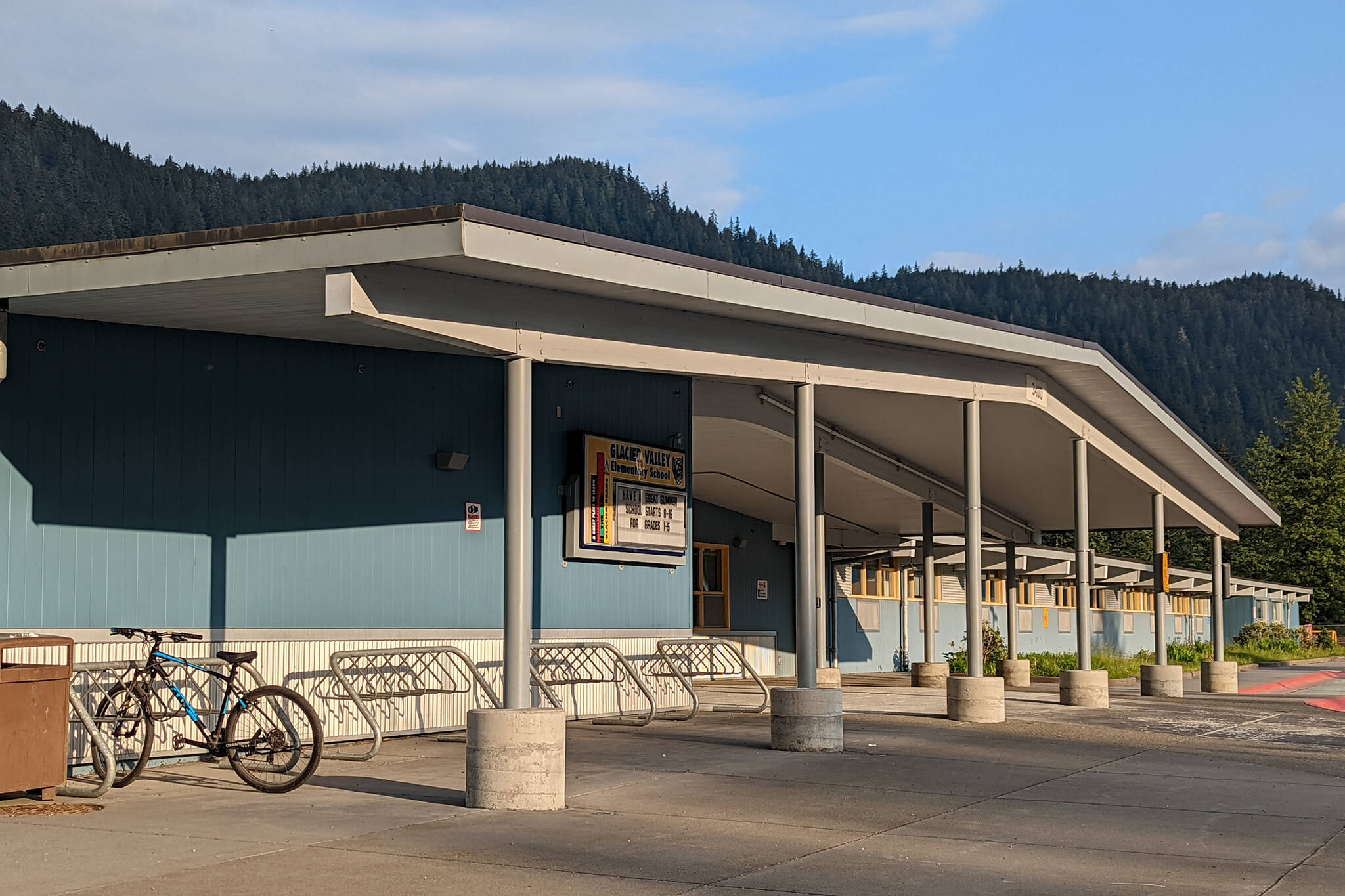Hiring outside investigators for three aspects of the June 14 “milk” incident at Sitʼ Eeti Shaanáx̱ – Glacier Valley Elementary School was tacitly approved by the Juneau School District Board of Education during a special meeting Thursday, although there is debate about whether local or national experts are preferable for at least some of the probes.
An uproar attracting national attention occurred when 12 children and two adults drank floor sealant served to them in place of milk at breakfast during a summer program at the school. None of the people ingesting it suffered lasting harm, but widespread criticism quickly focused on the district taking hours to notify parents and multiple violations of policy by the food service company.
No criminal charges were recommended in the matter largely considered by school and food service officials to be an accident, but the school board in mid-June asked the city attorney’s office to examine options for a third-party investigation to determine objective facts the public would trust.
The most recent meeting about the subject was about a week ago, said Juneau City Attorney Robert Palmer. He said three areas of investigation are currently envisioned: food safety, emergency notifications to the public and compiling all of the different results of investigations into a single “final product” to present it to the board.
“We have explored all three of those and we are still reaching out to various names that have been given to us by all sorts of people,” he said.
A rough estimate is each investigation will cost about $10,000, but that could vary considerably depending on the board’s wishes, Palmer said. Hiring a nationally known expert to assess food safety practices “could be really expensive,” while the alternative of finding technical experts in Southeast Alaska “may not charge that much an hour.”
Opinions about the merits of local and outside experts were voiced by board members. Among the primary reasons the incident occurred, for instance, similar-looking pouches of the sealant and milk were both incorrectly put on pallets for shipping to the district and then stored in a warehouse only meant for food.
“This person we get has to have the skills and abilities to go back as far as when (the sealant) was crated up in Seattle or Washington somewhere,” said board member Martin Stepetin Sr. “That could be a lot. So maybe a local person is not able to do that.”
Board Vice President Brian Holst was among the members suggesting there are advantages to hiring local experts, since while the goal is an investigation “outside” the district he believes the public has confidence in local entities in general.
“I don’t feel we need to go outside Juneau,” he said. “I would rather find the person that’s accessible to us, competent to us.”
Holst also said ensuring third-party investigations go beyond the specifics of the incident are important since it seems unlikely there will be another mix-up involving floor sealant.
“I want to apply it to other situations,” he said. “Do we have a system in place to ensure our children are safe? I don’t want to make the scope much larger, but I’m hoping a careful review will explain not just how this situation happened, but also can this have some wider implications of how this can help our safety and kids.”
For example, the worker who served the chemical to students had training, including a “sip before serve” requirement, but it wasn‘t followed in this instance, Holst said.
“Maybe it’s because it wasn’t frequent enough,” he said.
There were no comments from the public following the board’s discussion.
The board unanimously endorsed Palmer’s obtaining more specific information about local experts to present to board members next week. Board President Elizabeth Siddon noted that there will also be an additional meeting for a second reading of the matter and public comment opportunity if the board chooses an option that costs money.
While Siddon said pursuing an investigation quickly is essential for the peace of mind of students and parents, especially as the new school year approaches, the district also needs to determine who will be providing food services when that happens.
The board was scheduled to vote on a one-year renewal of the contract for NANA Management Services the day the incident occurred, but suspended the action pending the outcome of investigations. The contract expires June 30 and, while the district has a contract for its summer programs, determining who will provide food services for the coming school year is gaining urgency, Superintendent Bridget Weiss said in an interview before the meeting.
“We are running up against a time crunch because even for school starting NANA has to order food and supplies in time,” she said. “We don’t normally ask for an extension, but we asked the (U.S.) Department of Education for one and got permission.”
Weiss said she doesn‘t know if the district will actually hire NANA for the period of the extension, but it is likely to be decided by the board by July 15.
• Contact reporter Mark Sabbatini at mark.sabbatini@juneauempire.com.

